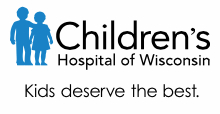Etanercept in Kawasaki Disease
| Status: | Active, not recruiting |
|---|---|
| Conditions: | Endocrine |
| Therapuetic Areas: | Endocrinology |
| Healthy: | No |
| Age Range: | Any - 20 |
| Updated: | 10/7/2017 |
| Start Date: | March 2009 |
| End Date: | February 2018 |
A Randomized, Double Blind, Placebo Controlled Study of the Effects of Etanercept in Children Presenting With Kawasaki Disease
The purpose of this study is to determine whether Etanercept (Enbrel) when used in
conjunction with IVIG and aspirin, improves treatment response to IVIG in patients with
Kawasaki Disease. Funding Source- FDA/OOPD
conjunction with IVIG and aspirin, improves treatment response to IVIG in patients with
Kawasaki Disease. Funding Source- FDA/OOPD
Kawasaki Disease (KD) is a potentially life threatening acute vasculitis in children with a
predilection for involvement of the coronary arteries. Aspirin and Intravenous gamma globulin
(IVIG) are principally used for the treatment of the symptoms of Kawasaki Disease. Aspirin
reduces inflammation and platelet formation, but has no effect in attenuating the development
of coronary abnormalities. Although IVIG reduces inflammation and the prevalence of coronary
artery abnormalities, it has a relatively high failure rate of 23-30%, warranting new
treatment methods for Kawasaki Disease. We propose a placebo controlled double blinded
randomized study to determine if etanercept 0.8 mg/kg subcutaneously (max 25 mg) given three
times at weekly intervals starting at initial diagnosis is safe in this patient population
and if it is a successful adjunct therapy with IVIG in reducing the incidence of persistent
or recurrent fever.
predilection for involvement of the coronary arteries. Aspirin and Intravenous gamma globulin
(IVIG) are principally used for the treatment of the symptoms of Kawasaki Disease. Aspirin
reduces inflammation and platelet formation, but has no effect in attenuating the development
of coronary abnormalities. Although IVIG reduces inflammation and the prevalence of coronary
artery abnormalities, it has a relatively high failure rate of 23-30%, warranting new
treatment methods for Kawasaki Disease. We propose a placebo controlled double blinded
randomized study to determine if etanercept 0.8 mg/kg subcutaneously (max 25 mg) given three
times at weekly intervals starting at initial diagnosis is safe in this patient population
and if it is a successful adjunct therapy with IVIG in reducing the incidence of persistent
or recurrent fever.
Inclusion Criteria:
- Male Age 2 months to 20 years of age Female Age 2 months to 11 years of age
- Provision of Parental Consent
- Kawasaki Disease Presentation
Exclusion Criteria:
- Laboratory Criteria: Any laboratory toxicity, at the time of the screening visit or at
any time during the study that in the opinion of the Investigator would preclude
participation in the study or:
1. Platelet count < 100,000/mm3
2. WBC count < 3,000 cells/mm3
3. Hemoglobin, hematocrit, or red blood cell count outside 30% of the upper or lower
limits of normal for the Lab
- Subject is currently enrolled in another investigational device or drug trial(s), or
subject has received other investigational agent(s) within 28 days of baseline visit.
- Female subjects diagnosed with KD 12 years of age and older.
- Subjects who have known hypersensitivity to Enbrel or any of its components or who is
known to have antibodies to etanercept
- Prior or concurrent cyclophosphamide therapy
- Prior treatment with any TNF alpha antagonist or steroid within 48 hours prior to
initiation of IVIG
- Concurrent sulfasalazine therapy
- Active severe infections within 4 weeks before screening visit, or between the
screening and baseline visits.
- SLE, history of multiple sclerosis, transverse myelitis, optic neuritis, or chronic
seizure disorder
- Known HIV-positive status or known history of any other immuno-suppressing disease.
- Any mycobacterial disease or high risk factors for tuberculosis, such as family member
with TB or taking INH
- Untreated Lyme disease
- Severe comorbidities (diabetes mellitus requiring insulin, CHF of any severity, MI,
CVA or TIA within 3 months of screening visit, unstable angina pectoris, uncontrolled
hypertension (sitting systolic BP > 160 or diastolic BP > 100 mm Hg), oxygen-dependent
severe pulmonary disease, history of cancer within 5 years [other than resected
cutaneous basal or squamous cell carcinoma or in situ cervical cancer])
- Exposure to hepatitis B or hepatitis C or high risk factors such as intravenous drug
abuse in patient's mother, or history of jaundice (other than neonatal jaundice). SLE,
history of multiple sclerosis, transverse myelitis, optic neuritis or chronic seizure
disorder.
- Use of a live vaccine (Measles Mumps Rubella or Varicella) 30 days prior to or during
this study.
- Any condition judged by the patient's physician to cause this clinical trial to be
detrimental to the patient
- History of non-compliance with other therapies
- Must not have received immunosuppressive agents for at least three months prior to
enrollment.
We found this trial at
8
sites
Columbia University Medical Center Situated on a 20-acre campus in Northern Manhattan and accounting for...
Click here to add this to my saved trials
Click here to add this to my saved trials
6621 Fannin St
Houston, Texas 77030
Houston, Texas 77030
(832) 824-1000

Principal Investigator: Carolyn A. Altman, MD
Phone: 832-826-5682
Texas Children's Hospital Texas Children's Hospital, located in Houston, Texas, is a not-for-profit organization whose...
Click here to add this to my saved trials
9000 W Wisconsin Ave #270
Milwaukee, Wisconsin 53226
Milwaukee, Wisconsin 53226
(414) 266-2000

Children's Hospital of Wisconsin Nothing matters more than our children. At Children's Hospital of Wisconsin,...
Click here to add this to my saved trials
Montreal, Quebec
Principal Investigator: Nagib Dahdah, MD
Phone: 514-345-4931
Click here to add this to my saved trials
Click here to add this to my saved trials
4800 Sand Point Way NE
Seattle, Washington 98105
Seattle, Washington 98105
(206) 987-2000

Principal Investigator: Michael A Portman, MD
Phone: 206-884-1014
Seattle Children's Hospital Seattle Children’s Hospital specializes in meeting the unique physical, emotional and developmental...
Click here to add this to my saved trials
Click here to add this to my saved trials

